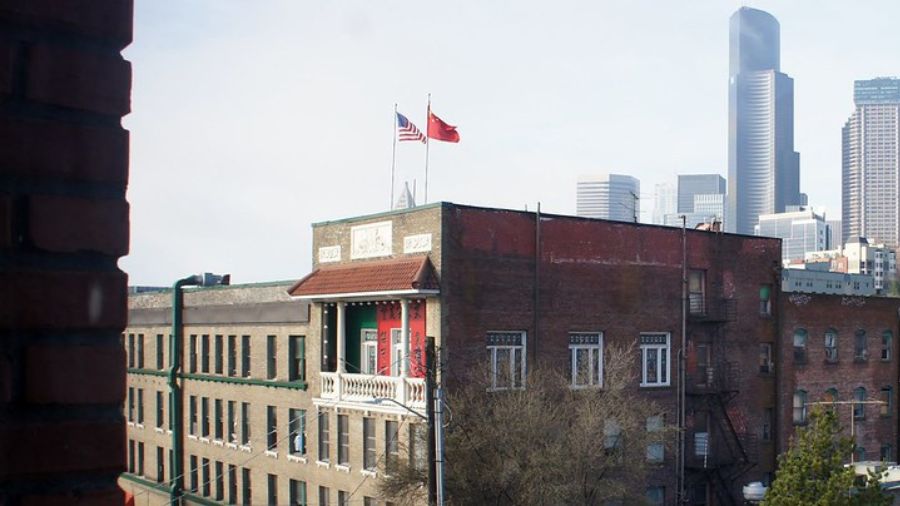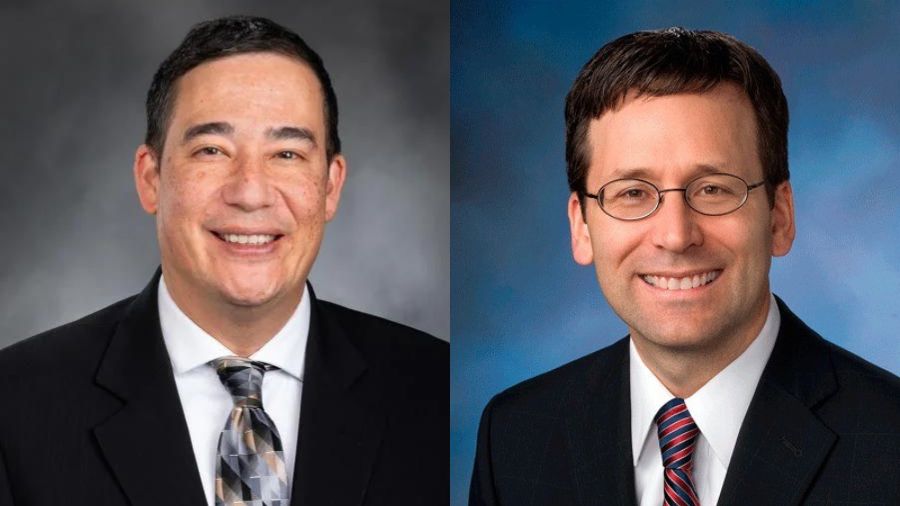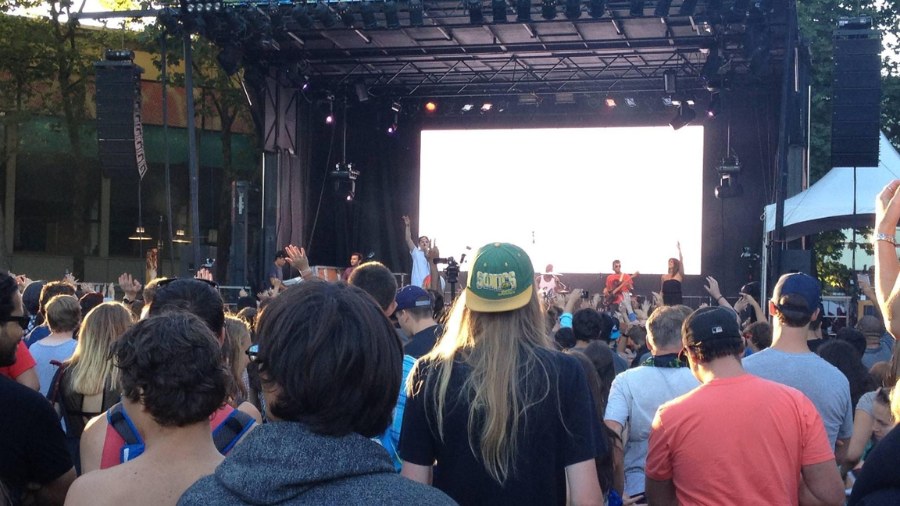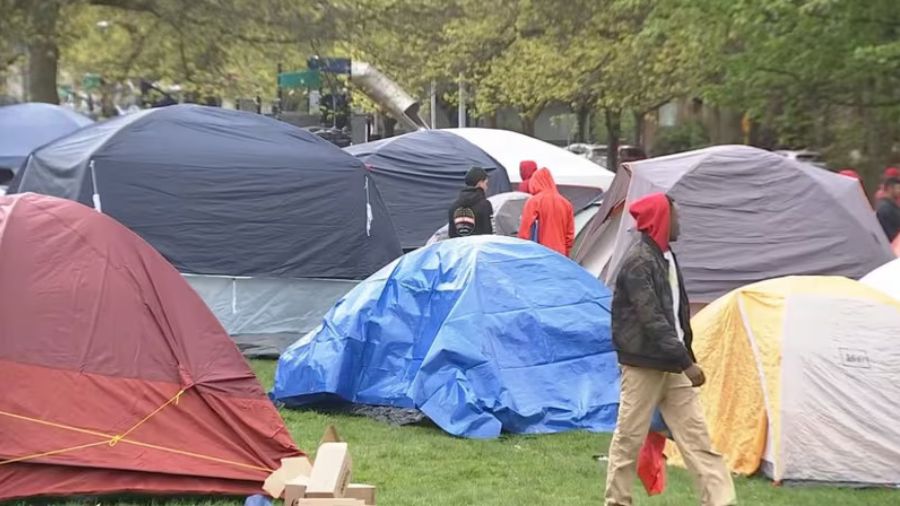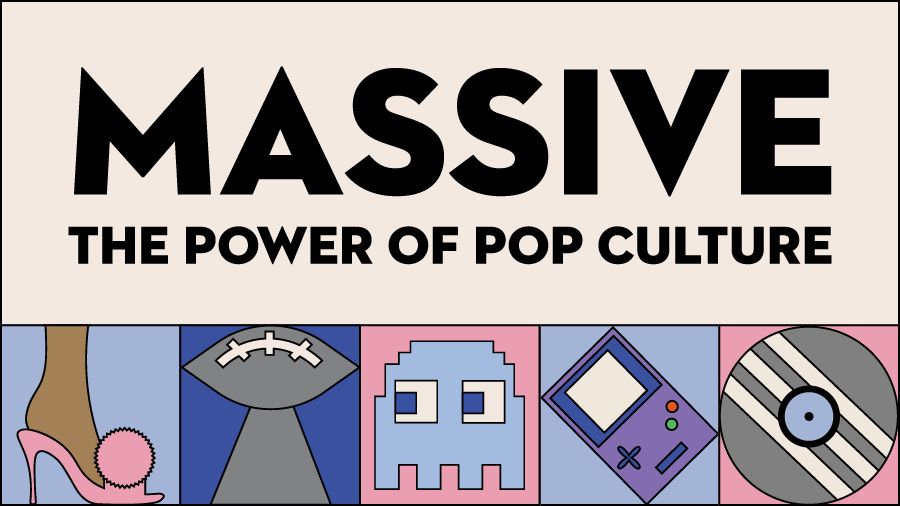Medved: Will 2024 be the year of crucial political debates on TV?
Oct 7, 2023, 9:05 AM
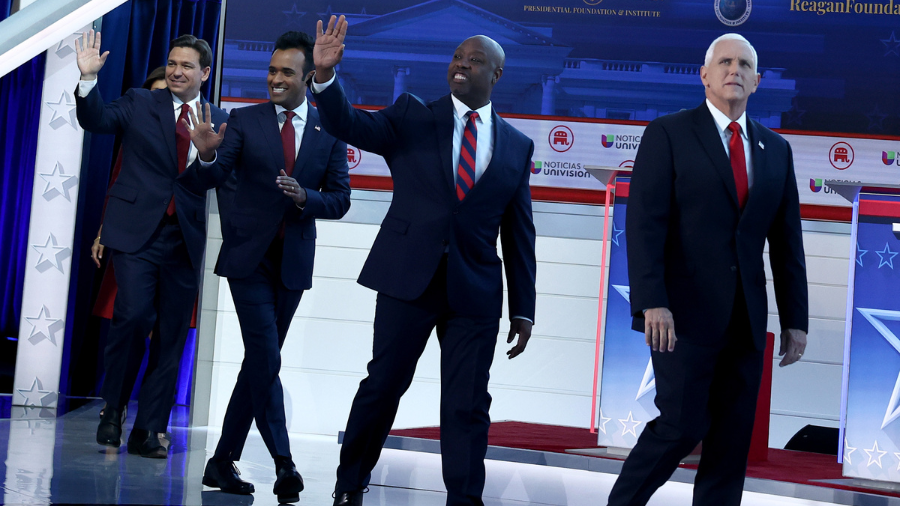
Republican presidential candidates (L-R), Florida Gov. Ron DeSantis, Vivek Ramaswamy, U.S. Sen. Tim Scott (R-SC) and former U.S. Vice President Mike Pence walk on stage during the FOX Business Republican Primary Debate at the Ronald Reagan Presidential Library on September 27, 2023 in Simi Valley, California. (Photo by Mario Tama/Getty Images)
(Photo by Mario Tama/Getty Images)
Televised debates have become a crucial, eagerly anticipated element of every presidential election since 1976, but the campaign of 2024 may bring a radical change in that half-century tradition.
Each of the likely major party nominees, Joe Biden and Donald Trump, and very possibly both of them, may decline to participate in the familiar October ritual. Advisers to both sides could easily calculate that the risks of such a high-profile, live media confrontation could outweigh any potential gains.
Former President Trump has already reached that conclusion regarding the first two Republican primary debates, with strong hints that he also plans to skip the third GOP gathering scheduled for November in Miami.
More on the primaries: Third Republican presidential debate is set for Nov. 8 in Miami, with the strictest qualifications yet
Trump’s absence from the earlier debates certainly produced no damage to his standing in the polls or undermined his dominant role within the Republican Party. In both of his prior presidential runs, he generated more favorable public reactions and more consistent ratings with his long, rambling speeches to nearly delirious rally crowds than any broadcast in which he was forced to share the stage with rivals he despises.
As for Biden, his handlers already take pains to keep their 80-year-old boss mostly protected from pestering questions from the press, so that avoiding an aggressive, insistent grilling from Trump himself, who’s notorious for his lack of both self-control and courtesy, already constitutes a natural priority for their cautious campaign.
Would the public protest if the candidates continued to concentrate on their admiring loyalists and sympathetic reporters, while dodging the sort of crude, nasty, angry slugfest they delivered in their first debate of 2020, from Cleveland on Sept. 29? Memorably described by Jake Tapper of CNN as “a hot mess, inside a dumpster fire, inside a train wreck” and hailed by George Stephanopoulos of ABC as “the worst presidential debate I have ever seen in my life,” the broadcast failed to deliver a discernable boost to either candidate.
The second debate, complicated by then-President Trump’s COVID-19 diagnosis, and his stout refusal to participate in any form of remote broadcast with the two candidates and the moderator in different locations, led to a last-minute cancellation that produced scant disappointment from either voters or television viewers.
Presidential debates in the 20th century
In fact, even after the storied and groundbreaking Nixon-Kennedy debates of 1960, where the two candidates engaged in four different substantive confrontations, the early history of televised presidential debates demonstrated that successful nominees could duck their invitations to face down their rivals and still win landslide victories.
In 1964, Lyndon Johnson had built up so much goodwill and admiration after taking over from the martyred JFK, he saw no reason to appear together with the controversial, acerbic Republican standard-bearer Barry Goldwater. He nonetheless carried 44 states and 61% of the popular vote.
Four years later, Richard Nixon returned as the Republican nominee, having lost to Kennedy in 1960 by one of the slimmest margins in history — which many commentators blamed on his haggard appearance and lack of energy in the first-ever televised presidential debate. Obviously, “Tricky Dick” needed no trickery to shun the format in his next two races in 1968 and 1972, winning the first campaign with 32 states and the second, carrying 49 of the 50 states and 520 electoral votes.
More from Michael Medved: GOP heading to irrelevance as party fails to embrace demographic changes
The next campaign, between Nixon’s successor Gerald Ford and Georgia governor Jimmy Carter, revived the suspended tradition of televised debates and closely contested elections. In fact, a random, bone-headed comment by the Republican incumbent in their October debate (“There is no Soviet domination of Eastern Europe and there never will be under a Ford administration.”) is widely credited with giving Carter the slight lift he needed to prevail in November. That single sentence (recited a second time when journalist Max Frankel cut in to ask what President Ford had meant) stands as a warning to the two gaffe-prone front-runners in 2024 about the ongoing dangers of the debate format.
It’s not at all difficult to imagine either Biden or Trump (or, of course, both of them) uttering some inaccurate or incoherent combinations of words that could undercut any momentum they had built up late in the race.
A third party joining the race
Another factor making the debate stage a particularly dangerous territory for these two aging and all-but-inevitable nominees are multiple polls showing some 70% of American voters, of both parties and no party, wishing that the final ballot in November of next year offered some fresh alternative to the doddering duopoly of Biden and Trump. If those survey respondents mean what they say, it shouldn’t be unthinkable for some third – or fourth – party candidate to earn at least 15% support on a consistent basis, which would qualify them for debate participation, which in turn might set up a genuine three-way competition that would challenge two-party control.
For several weeks in the autumn of 1992, as President George H.W. Bush sought reelection, this appeared to be the unprecedented situation. Millionaire entrepreneur Ross Perot rode high enough in the polls (scoring more than 15% of likely voters) to qualify for participation in three debates against President Bush and Arkansas Gov. Bill Clinton, while earning his running mate (Admiral James Stockdale) a place on stage against Senators Al Gore and Dan Quayle.
Perot did particularly well in the first debate in St. Louis, where a CNN/USA TODAY poll of those who had watched the televised event showed a stunning 47% who believed the independent businessman had “won” the night, with 30% picking Clinton and a mere 16% giving President Bush the nod.
At this point, expert opinion saw a genuine chance for Perot to sweep the field with his hastily organized “Reform Party,” but his impetuous withdrawal from the race in its climactic stages, and incomprehensible return, doomed any chance of actual victory. He still managed 19% of the popular vote.
In this year’s contest, no formidable independent has emerged to provide a meaningful alternative to Biden and Trump, but several may be on the way. Reports from the beginning of October indicate Robert F. Kennedy Jr. is strongly considering the abandonment of his race for the Democratic nomination, in order to shift his attention to an independent campaign or, conceivably, as the nominee of the national Libertarian Party, if they will have him.
According to a commissioned survey by veteran pollster John Zogby, an independent drive by RFK Jr. would produce a tie between Trump and Biden (at 38% each) with the anti-vaccine activist winning 19% support – more than enough, unless the rules are altered, to secure a spot in at least the first debate.
Political candidate update: RFK Jr. defends himself against complaints of racist and antisemitic online misinformation
Meanwhile, the “No Labels” organization has raised more than $70 million to secure ballot access in as many states as possible, with a convention scheduled for next April to nominate a bipartisan ticket, potentially headed by Sen. Joe Manchin of West Virginia or another celebrated name. Again, the crucial challenge for such a candidacy would be to insert that new presidential possibility into the televised debate, as a more vital and less tired alternative to the Grumpy Old Men likely to represent both Democrats and Republicans.
Moreover, the presence of a third candidate in the televised debates should force both of the major party nominees to take part in it as well, whatever their reservations. If, say, Manchin or Kennedy get an invitation for a television meeting of the minds, it’s hard to imagine Trump doing a rally somewhere else and letting Biden get all the attention of confronting the new guy.
By the same token, President Biden may find the White House a comfortable substitute for his sheltered Wilmington basement, but he would never allow Trump to join forces, however briefly, with a minor party alternative in tearing down the status quo and the chief executive responsible for the pains and problems of the present.
Another episode from the past illustrates the way that this dynamic can work. In 1980, a moderate GOP Congressman from Illinois named John Anderson decided that Ronald Reagan’s ideas, particularly about the economy, qualified as too conservative and too extreme, so he shifted from a contender for the Republican nomination to an independent candidacy. When his support level passed 20%, the League of Women voters (then sponsoring the debates) invited his participation. President Jimmy Carter, the incumbent, refused to show up, terrified that Anderson would take votes from the Democrats and hand victory to Reagan.
The result: A strange, but very entertaining debate, between the Republican nominee and the independent candidate (and former Republican) John Anderson. Reagan dazzled in the setting, as usual, getting off some wonderful one-liners, even on the no-laughing-matter issue of abortion: “I noticed that everyone who is for abortion has already been born,” he observed. The result of this two-person encounter brought Reagan a significant bounce in the polls and forced Carter to allow a last-week, man-to-man showdown with the former California governor, since Anderson had fallen below debate thresholds in his poll numbers.
More from Michael Medved: Picking the right running mate could powerfully boost Trump’s prospects
That final exchange, including Reagan’s famous close (“Are you better off than you were four years ago?”) led directly, and almost immediately, to his landslide victory and an unexpected gain of 12 seats (that’s right 12!) by his fellow Republicans in the U.S. Senate.
This year, if nothing else, some third-force candidacy should provide some hint of freshness and energy, better television ratings and openings for new ideas, together with some sparks of hope that provide more sustenance and encouragement to all those tens of millions of debate watchers who yearn for a more meaningful exchange of ideas.
We deserve more than another ill-tempered exercise of Biden and Trump belching their weary, dreary insults at one another. As John F. Kennedy, the debate star of 1960, used to say: We can do better.
Listen to Michael Medved weekday afternoons from 12-3 p.m. on KTTH 770 AM (or HD Radio 97.3 FM HD-Channel 3)




